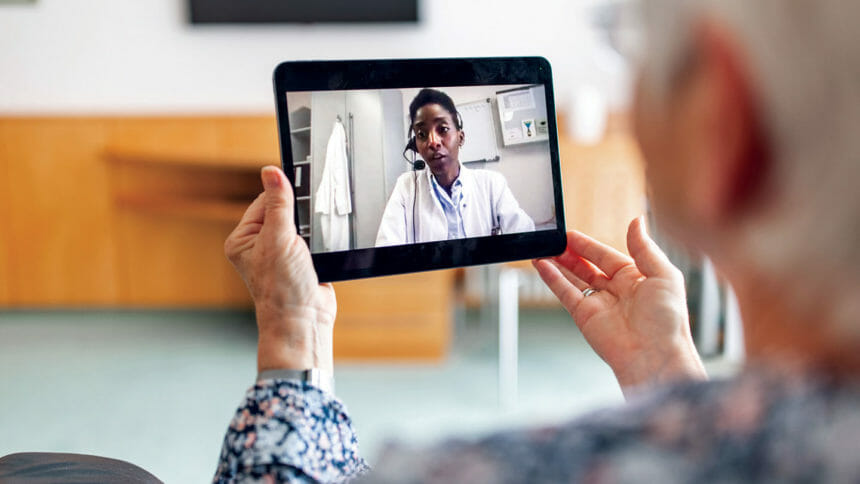
A new study by Vanderbilt University researchers suggests that use of telemedicine (also known as telehealth) may be just as effective for shared decision-making and communications between patients and clinicians for patients who are considering undergoing surgery.
Researchers studied 387 patients who were participating in first-time visits at general surgery clinics across Vanderbilt University Medical Center in Nashville, TN, over a 13-month period. The study included 301 patients who underwent in-person visits and 86 who underwent telemedicine visits. It appeared in the Jan. 19 issue of the Journal of the American College of Surgeons and was presented at the Southern Surgical Association 134th Annual Meeting in December.
The researchers had initially hypothesized that telemedicine consultations between patients and surgeons would result in poorer communication than in-person visits but were surprised by the findings. Telemedicine was not associated with less satisfactory communications than in-person visits, and many patients who used telemedicine reported positive responses about its convenience and usefulness, the authors found.
“I expected that telemedicine visits would result in an inferior quality of communication. While we did see that in some responses, we also saw some very positive perspectives on telemedicine visits both in terms of how the actual interaction went and the overall convenience of the process,” study co-author Thomas Ueland, a third-year medical student at Vanderbilt University School of Medicine, said in an American College of Surgeons news release about the study.
Alexander T. Hawkins, MD, MPH, FACS, the study’s co-author and associate professor of surgery at Vanderbilt University Medical Center in Nashville, TN, said their health system has seen a dramatic increase in the use of its telehealth program since the COVID-19 pandemic.
“Across the entire healthcare system, we now do about 20,000 telehealth visits a month,” he said in the release. “Previously, there had been concerns about whether we could effectively communicate with patients remotely, but we found that patients are just as satisfied with telehealth visits as in-person appointments.”
The authors noted that telehealth visits may not be appropriate in all cases prior to surgery, such as when an in-office physical exam needs to be performed by a physician.
“Ultimately, it very much depends upon what the surgeon and the patient think is the best way to communicate,” Hawkins said. “Going forward, we need to determine what is most appropriate for telehealth, and what is most appropriate for in-person visits.”



